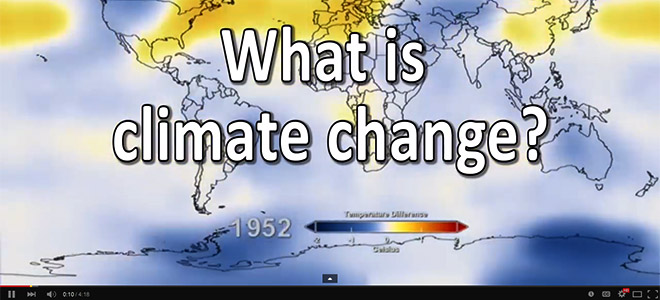by Anne U. Gold, David J. Oonk, Lesley Smith, Maxwell T. Boykoff, Beth Osnes, and Susan B. Sullivan
Journal of Geography
March 24, 2015
Abstract
Learning about climate change is tangible when it addresses impacts that can be observed close to home. In this program, sixty-four diverse middle and high school students produced videos about locally relevant climate change topics. Graduate and undergraduate students provided mentorship. The program engaged students in research and learning about climate change, and sparked their interest in science careers. Evaluation results showed that students were highly motivated by the experience, developed a genuine interest in their science topic, learned about the scientific process, and developed twenty-first century skills. The program provided a unique and authentic approach to science learning and communication.
Introduction
Recent reports from the United Nations Intergovernmental Panel on Climate Change (IPCC) make clear that climate and environmental change will significantly affect future generations and life on Earth (IPCC 2014). Research results unequivocally show that human-induced greenhouse gas emissions cause measurable changes in the climate system and a steady global warming. However, public opinion polls show that only 63 percent of the American public (Leiserowitz et al. 2014) and only 54 percent of American teenagers (Leiserowitz, Smith, and Marlon 2011) think that global warming is occurring, while the scientific community broadly agrees that human-induced climate change is happening (IPCC 2013). This discrepancy calls for action to find alternative ways to communicate accepted research findings to the public. Outreach and education activities play a key role in closing this gap between scientist understanding and public perception of this research.
We report here on one such effort to communicate the impact of climate change on a local scale. In the 2013–2014 academic year, sixty-four middle and high school students (typically ages 9–18) from Colorado produced short videos about how climate change affects their lives. Participating students were mentored by geoscience graduate students and most by a video expert, and engaged directly with research scientists to learn about the current state of knowledge around their chosen topic. Through the video-production process, participating students learned about scientists’ research findings and translated them into their own words when crafting the message of their videos. Read more …


